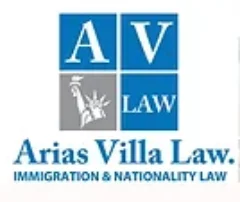Treaty Traders & Investors E-1, E-2, EB-5
The Treaty Trader also known as E-1 visa, and Investors visas –also known as E-2 visa, are among the non-immigrant visas that the United States (U.S.) Immigration and Naturalization Act (INA) offers. Additionally, the EB-5 is a special type of investor visa the U.S. government offers. The Treaty Trader or E-1 visa is offered to traders and their spouses and children.
First, the Treaty Trader or E-1 visa requires that the person be a national of a country with which the U.S. has a commercial treaty. Before considering applying for an E-1 visa, the applicant must verify that his/her country of nationality possesses a treaty with the U.S. Second, the applicant must enter the U.S. solely to engage in trade of substantial nature between the U.S. and his/her country of nationality. Trade may be on goods or services. INA confers E-1 visas to both the trader and employees working for the trading company. The spouse of the E-1 holder is entitled to a work authorization document. The Treaty Trader or E-1 visa may be requested at the U.S. consular office abroad or may be submitted before U.S. Citizenship and Immigration Services (CIS). If requested at CIS and approved, the applicant and his family must travel to the U.S. consular office to get their passport stamped with the E-1 visa. The Treaty Trader or E-1visa is usually granted for up to five years, but Immigration and Customs Enforcement (ICE) will provide an I-94 with two years of allowed stay in the U.S. The E-1 holder, however, may request extensions of his/her I-94 for another two years. E-1 visa holders may request unlimited extensions and visa renewals provided that they continue the trade and conditions of the visa.
The E-2 or investor visa is the typical investor visa that INA grants to foreign nationals wishing to invest in the U.S. The E-2 or investor visa is granted to the investor, his/her spouse and children. As the E-1 or Treaty Trader visa, the E-2 or investor visa requires the existence of a treaty between the U.S. and the applicant’s country of nationality. In addition to the treaty between both countries, the E-2 visa requires a “substantial investment.” INA does not define what a substantial investment is. Thus, there is no specific amount required for this visa. Applicants, however, should consult with an immigration attorney experienced in handling these visas who may be able to tell applicants what amount is considered a “substantial investment” at the time the application is going to be submitted. E-2 or investor visas may be granted to those buying an existing business in the U.S. or those wishing to start their own business. A key element for the approval of this visa is showing the source of funds used to make the investment. Applicants should be ready to prove where those funds came from by showing bank documents or any other financial document to this effect. The investor visa or E-2 is granted for up to five years and, as the E-1 or Treaty Trader visa, the I-94 is given for two years. Unlimited renewals and extensions of the I-94 are available for the E-2 visa provided that the investor continuous in the same capacity for which the visas was granted. The E-2 or investor visa may be requested at the U.S. consular office in the applicant’s country of nationality or at CIS in the U.S.
The EB-5 or alien entrepreneur visa is a special type of investor visa offered by the U.S. government that confers lawful permanent resident status. Applicants should get the advice of an immigration attorney to apply for this type of visa because it is extremely complex. The EB-5 visa allows foreign investors to request lawful permanent resident (LPR) status – or green card for them, their spouses and children, provided that they invest at least 1 million and fifty dollars in the U.S. The 1 million and fifty dollar-capital investment can be reduced to US$800,000 if invested in an area of low employment in the U.S called Regional Centers. The U.S. government has specifically selected these areas. The EB-5 applicant investing US$800,000 will not be on direct control of his/her investment; the investment is placed on a pool of investment in one of the pilot areas selected by the U.S. government. Those investing 1 million and fifty dollars must show that his/her investment will generate at least 10 direct and full-time jobs in a two-year period. In addition to these basic substantive requirements, the EB-5 involves several other requirements such as a business plan, certain CIS forms and application fees. EB-5 applicants will be granted LPR conditional status for two years. After the two years, they must show that they did generate the 10 direct and full-time jobs to have their conditions removed. Once conditions are removed, EB-5 applicants are granted LPR status.
Treaty Trader or E-1 visa, E-2 or investor visa, and EB-5 or alien entrepreneur visa are complex and detailed-oriented petitions that required the expertise of an attorney. Immigration attorney Martha L. Arias can advise you and help you prepare and submit your E-1, E-2 or EB-5 visa. Call now for a consultation with attorney Martha L. Arias!

